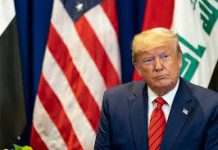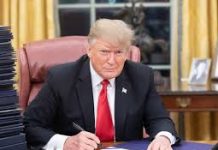
The Biden administration’s focus on Bangladesh in its democracy promotion strategy, juxtaposed with its reticence regarding the severe political repression in Pakistan, reflects a pattern of selective advocacy driven by geopolitical interests. Historically, U.S. efforts to promote democratic values have been influenced by strategic priorities, and the Biden administration’s approach is no exception.
In Bangladesh, the U.S. has leveraged its influence by threatening visa sanctions against officials accused of undermining democratic processes, with the aim of ensuring a free and fair election in early 2024. This strategy is partly motivated by the presence of influential Bangladeshi figures in the U.S. and the significant economic ties between the two nations, with the U.S. being a major destination for Bangladeshi exports.
However, this approach has been met with criticism. Bangladeshi Prime Minister Sheikh Hasina has accused the U.S. of attempting regime change, arguing that these measures undermine democratic integrity rather than support it. Under Hasina’s leadership, Bangladesh has achieved notable political stability and economic growth, despite recent economic challenges exacerbated by the global fallout from the Ukraine war.
In contrast, Pakistan, which has faced persistent political and economic instability and is on the verge of default, has been invited to U.S. Summits for Democracy despite its own democratic shortcomings. The Biden administration has maintained a pragmatic approach towards Pakistan, prioritizing short-term geopolitical interests over democratic concerns.
The U.S. has taken punitive measures against Bangladesh, such as designating its Rapid Action Battalion as responsible for serious human rights abuses, and has criticized the Bangladeshi government’s handling of political violence and media freedom. Secretary of State Antony Blinken’s threats of visa sanctions are seen as targeting members of Hasina’s administration, but such sanctions often serve symbolic purposes and can impede diplomatic efforts, potentially leading to unintended consequences.
Earlier this month, Beijing declined Washington’s request for a meeting between U.S. Defense Secretary Lloyd Austin and Chinese Defense Minister Gen. Li Shangfu in Singapore. Beijing’s refusal was based on Li’s inclusion on a U.S. sanctions list, a designation that predates his current position by five years.
There is a compelling argument that U.S. sanctions targeting Myanmar’s Commander-in-Chief Min Aung Hlaing and other senior military officials may have inadvertently fueled the 2021 coup that ousted Myanmar’s civilian government. With the generals facing minimal personal repercussions, they may have been incentivized to act. Subsequent sanctions have only deepened Myanmar’s isolation and pushed it closer to China.
From Myanmar and Iran to Belarus and Cuba, U.S. sanctions have struggled to induce significant political change. The diminishing influence of the U.S. and the shifting global power dynamics from the West to the East have rendered these sanctions less effective. Nonetheless, the West’s control over the global financial system and the dominance of the dollar as the primary reserve currency keep sanctions a viable tool for U.S. policymakers.
The recent hardline stance toward Bangladesh seems counterproductive. The Hasina government could potentially be a valuable ally in the U.S. counterterrorism efforts and in enhancing regional security. Instead, U.S.-Bangladesh relations are strained, as evidenced by the absence of any U.S. official meetings with Hasina during her recent visit to Washington for discussions with the World Bank and the IMF.
During his time in Singapore, Austin proclaimed that the U.S. “will not flinch in the face of bullying or coercion” from China. However, applying similar tactics toward Bangladesh is unlikely to advance U.S. interests. In fact, such an approach might revive memories of the U.S.’s historical indifference during the 1971 Bangladesh Liberation War, when the U.S. overlooked the Pakistani military’s severe repression of the independence movement. This raises a crucial question: What is Washington truly seeking to achieve now?




